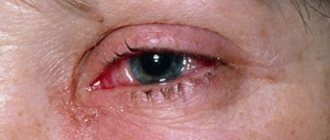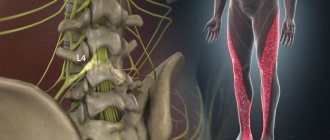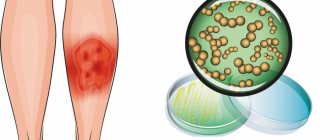A vaginal suppository consists of a base form and medication. They remain solid at room temperature and dissolve at body temperature. The use of suppositories in gynecology allows you to act directly on the source of inflammation or pathology.
Suppositories vary in type, purpose and active ingredients. A gynecologist will help you choose the right medicine. Doctor A employs specialists of the first and highest categories who prescribe only modern drugs with proven high effectiveness.
Benefits of candle therapy
Using suppositories for women's health in the treatment of gynecological diseases is convenient and simple. They are inserted painlessly, and the procedure can be completed without outside help.
Other advantages of intravaginal therapy compared to oral administration of drugs with the same active ingredient:
- wide spectrum of action;
- minimum side effects and absence of negative effects on the gastrointestinal tract and kidneys;
- rapid absorption into the blood - about an hour after administration of the suppository.
How to use vaginal suppositories
Suppositories are a medicine that is prescribed by the attending physician according to indications. Before using any vaginal suppositories, consultation with a specialist is necessary.
Also, before use, you should study the instructions for the drug. It contains recommendations on the duration of therapy. If the gynecologist has not prescribed an individual treatment regimen, follow the instructions.
As a rule, suppositories are used once a day. It is most convenient to use the candle in the evening before bed: after administering the medicine, it is recommended to lie down.
Correctly use vaginal suppositories as follows:
- Visit the toilet, wash your hands and perform hygiene procedures without using soap, intimate gels and foams.
- Release the suppository from the packaging and immediately insert it into the vagina as deeply as possible.
- Spend at least 20 minutes in a lying position: during this time the form will have time to melt and the medicine will be absorbed.
The thin fatty membrane of the drug in the form of a suppository melts at body temperature and flows out, so it is better to use a gasket. Leaked liquid from the skin and mucous membranes should be removed with a napkin or water.
Forms of the disease
Treatment of inflammation of the appendages in women should begin by determining the stage of the disease. There are three forms of development of adnexitis:
- chronic;
- acute;
- subacute
Any of the stages is accompanied by certain symptoms and is dangerous for the body. The lack of proper treatment will worsen the situation, and the consequences of the disease will be more severe.
Acute form of the disease
This stage of disease development occurs immediately after the end of the latent period of infection. The symptoms of this form clearly indicate the presence of problems in the gynecological area. The initial stage of inflammation of the appendages is accompanied by the following symptoms:
- increase in body temperature;
- the presence of purulent vaginal discharge with an unpleasant odor;
- chills;
- the presence of discomfort and pain during sexual intercourse;
- increased sweating;
- decreased sexual desire;
- severe headaches;
- difficulty urinating;
- menstrual irregularities.
Most signs confirm the presence of a strong inflammatory process in the body. The development of adnexitis is indicated by problems with the regularity of the menstrual cycle and pain in the genital area.
Subacute form of the disease
At this stage, the signs of inflammation of the appendages are identical to the above symptoms. This is due to the fact that the subacute form is a periodic occurrence of exacerbations. The intensity of all symptoms is reduced. A complete absence of signs of the disease cannot be ruled out. In this case, diagnosing and monitoring the progress of treatment becomes very difficult. The presence of the disease at this stage is indicated by:
- irregular menstrual cycle, often accompanied by pain;
- slight decrease in sexual desire;
- pain that occurs in the lower abdomen, which is paroxysmal in nature.
The subacute stage gradually turns into the chronic stage. Correct therapy will alleviate the condition and prevent serious complications from developing.
Chronic form of the disease
Having passed to this stage, most diseases of the genital area lose their characteristic signs. Inflammation of the appendages is accompanied by symptoms that are characteristic of the subacute form, although they are less pronounced. The symptoms are as follows:
- the presence of unbearable pain during sexual intercourse;
- short period of menstruation, which does not exceed two days;
- lack of sexual desire;
- the presence of intestinal disorders;
- inability to get pregnant;
- presence of bloody vaginal discharge.
The chronic stage often transitions back to the subacute stage. This phenomenon occurs due to a strong decrease in the protective function of the immune system. This occurs when the body is significantly hypothermic or during prolonged exposure to a stressful situation. It is worth seeking gynecological help if there are several signs of inflammation of the appendages; self-treatment often leads to complications and infertility.
Suppositories in gynecology: indications for use
Anti-inflammatory suppositories
Many gynecological diseases and pathologies are accompanied by tissue inflammation. Anti-inflammatory suppositories in gynecology help deliver the medicine directly to the site of inflammation. The most common active ingredients in such drugs: diclofenac, indomethacin, prednisolone. Preparations with herbal active ingredients are also available for sale: sea buckthorn or eucalyptus oil, chamomile, sage, calendula.
Suppositories with natural ingredients are allowed for pregnant women and teenage girls. Some suppositories for inflammation in women have an additional analgesic effect.
Indications for use:
- vaginitis;
- vulvovaginitis;
- erosion;
- oophoritis;
- cystitis;
- urethritis;
- endocervicitis;
- endometritis.
Antibacterial (antimicrobial) suppositories
Antimicrobial suppositories for women usually contain iodine, chlorhexidine, metronidazole, miconazole, penicillin, cephalosporin, macrolide, co-trimoxazole or another antibiotic that kills bacteria that cause tissue infection.
Indications for use:
- vaginal candidiasis (thrush);
- inflammation caused by the activity of pathogenic microorganisms, such as vaginitis, cervicitis and others;
- prevention of infectious diseases and inflammation before gynecological interventions.
Painkiller suppositories
Modern suppositories are broad-spectrum suppositories; as a rule, they contain antiviral or antifungal, as well as anti-inflammatory and analgesic components. Anesthetic suppositories in gynecology with ketorolac or indomethacin in the composition can quickly relieve discomfort.
Indications for use:
- algodismenorrhea - severe pain in the lower abdomen during menstruation;
- endometriosis, cystitis, adnexitis and other diseases accompanied by pain;
- postoperative pain syndrome, including after vaginal delivery or CS.
Candles for restoring microflora
The acidic environment in the vagina supports its ability to self-cleanse and provides protection against bacteria and viruses. If the number of lactobacilli that maintain the required acidity is reduced, the protective functions of the system are blocked, and unpleasant symptoms occur.
In this case, it is recommended to use suppositories to improve microflora; they contain probiotic strains of lactobacilli. Such suppositories, which restore microflora, are usually used in gynecology after treatment with antibiotics.
Indications for use:
- unpleasant odor, a large amount of white or yellow discharge, itching, burning, cycle disruption and other symptoms indicating a violation of the vaginal microflora;
- completion of antibacterial therapy;
- prophylaxis before gynecological operations.
Hormonal suppositories
Hormonal suppositories contain a synthetic analogue of the female hormone estrogen. In gynecology, treatment with estradiol suppositories helps to compensate for its deficiency in the body.
Indications for use:
- treatment of genitourinary disorders associated with estrogen deficiency;
- severe symptoms of menopause;
- preoperative therapy and rehabilitation period after surgical interventions in postmenopausal women.
Antifungal suppositories
Antifungal suppositories in gynecology are prescribed when the mucous membranes are damaged by fungi. The active substance damages the cell membranes of fungi and promotes their death.
Indications for use:
- vaginitis, vulvitis, vulvovaginitis and other lesions of the vaginal mucosa caused by Candida fungi;
- prevention of candidiasis during long-term antibacterial therapy.
Antiviral suppositories
Suppositories used in gynecology for infections usually contain interferon or panavir - substances with antiviral and immunomodulatory properties. Such antiviral suppositories for women suppress the spread of the pathogen and increase the body's resistance to the infectious load.
Indications for use:
- genital herpes;
- trichomoniasis;
- chlamydia;
- chronic endometritis;
- urea and mycoplasmosis;
- papillomavirus infection
- gardnerellosis;
- relapse of candidiasis;
- other diseases of a viral nature.
Rectal use of suppositories
In the treatment of gynecological diseases, various rectal suppositories can be used: anti-inflammatory, antimicrobial and others. Once in the intestines, the medicine is quickly absorbed into its walls and then enters the blood, providing a general, rapid effect on the entire body.
When asked whether rectal suppositories can be used in gynecology or placed in the vagina, the answer will be negative. If the packaging for the drug contains instructions for rectal use, the suppository should be administered only into the rectum. Some suppositories, such as Nystatin, are available in both vaginal and rectal forms. Be careful when purchasing a prescribed drug.
Healing candles
Healing suppositories used in gynecology contain dexpanthenol or other stimulators of tissue repair. They accelerate the healing of the vaginal and cervical mucosa.
Indications for use:
- therapy for diseases that cause damage to the mucosa;
- ending local treatment with electric current, laser, liquid nitrogen and other traumatic methods;
- postoperative, postpartum period.
Suppositories for prevention in gynecology
Sometimes gynecologists prescribe suppositories for the prevention of female diseases after successful completion of treatment or before surgery. Even those types of vaginal suppositories that contain exclusively herbal ingredients and are classified as dietary supplements should be taken only after consultation with a specialist.
Causes of the disease
Inflammation often indicates the presence and active development of infections in the body.
In most cases, the causative agents of adnexitis are:
- gonorrhea;
- Trichomonas;
- chlamydia.
Pathogenic microorganisms actively develop and multiply if the immune system is weakened. Having penetrated inside, the infection will remain latent until the protection fails.
The following factors can provoke a decrease in the function of the immune system:
- psychological or physical fatigue;
- violation of the daily routine;
- poor nutrition;
- frequent exposure to stressful situations;
- recent colds;
- hypothermia.
Inflammation of the appendages in women can be provoked by overly active sexual relations and unprotected sexual intercourse. They contribute to the appearance of infection in the body.
A negative factor that provokes the development of the inflammatory process is the rapid resumption of sexual activity in a woman who has recently given birth to a baby. During this period, the immune system is still weakened and is not able to resist pathogenic microflora.
List of suppositories in gynecology
Suppositories for gynecological inflammations
- Indomethacin;
- Neo-Penotran;
- Movalis;
- Flagyl;
- Voltaren;
- Ecofucin;
- Diclofenac;
- Hexicon;
- Flamax;
- Terzhinan.
Suppositories for cysts in gynecology
- Utrozhestan;
- Iprozhin;
- Prajeesan.
Suppositories for cervicitis
- Sintomycin;
- Depanthol;
- Terzhinan;
- Polygynax;
- Hexicon.
Suppositories for endometriosis in gynecology
- Longidaza;
- Indomethacin;
- Galavit;
- Endometrin;
- Antikan.
Candles for adhesions
- Longidaza;
- Dystreptase;
- Lidaza.
Suppositories for dryness in gynecology
- Feminela;
- Beautyful;
- Revitax;
- Vagical;
- Femilex;
- Betadine;
- Vagiferon;
- Livarol.
Suppositories for erosion in gynecology
- Hexicon;
- Polygynax;
- Livarol;
- Depanthol;
- Betadine;
- Suporon.










